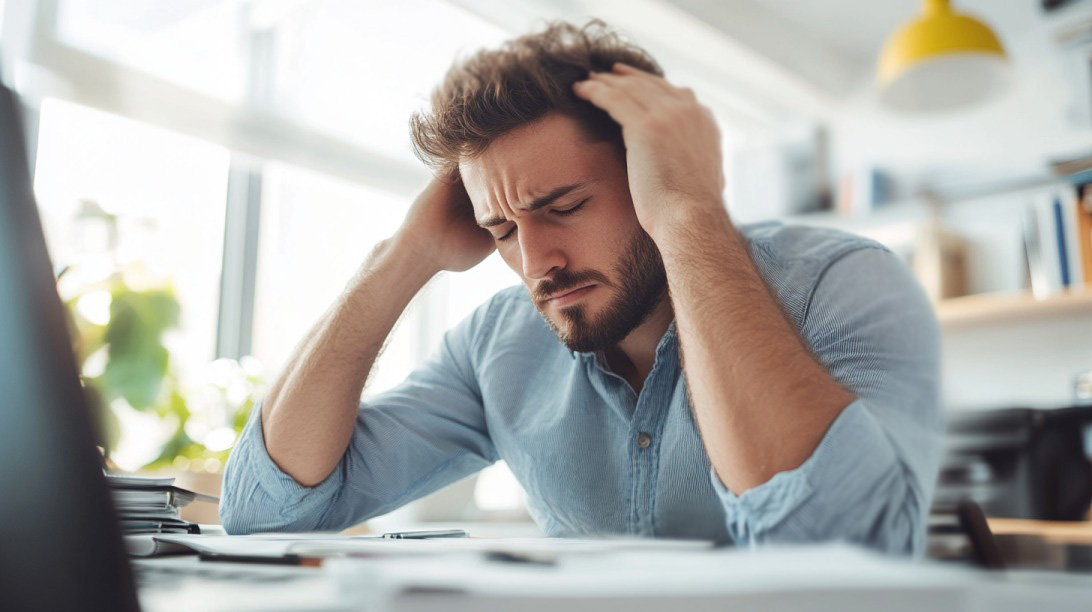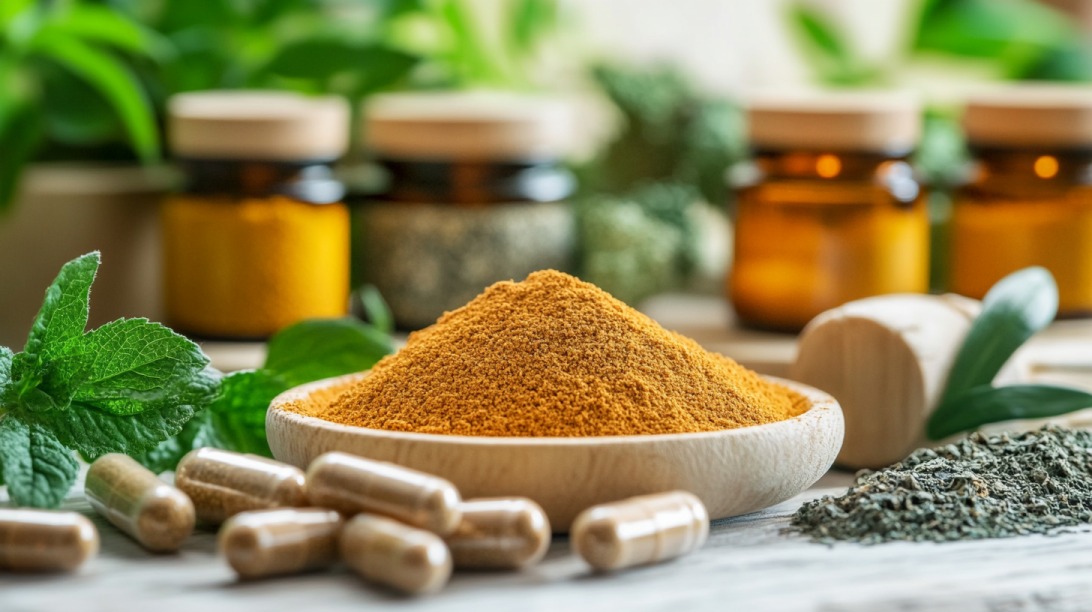When you’re dragging through the day, reaching for coffee is second nature. It’s quick, it’s familiar, and it works—until it doesn’t.
The jitters, the mid-afternoon crash, the sleepless nights… they can pile up fast. The truth is, caffeine might give you a short-term lift, but it’s not the kind of steady energy your body really craves.
Fortunately, there are plenty of natural ways to stay energized, and they don’t require a coffee shop pit stop. Whether you’re trying to quit caffeine or just want a more stable source of fuel, the tips below will give your body what it actually needs to stay alert, sharp, and balanced.
A Quick Look
| Habit | What to Do | How Often / How Much | Why It Works |
| Hydration | Drink water, herbal teas, eat hydrating foods | Men: 15.5 cups/day, Women: 11.5 cups/day | Supports focus, metabolism, and stamina |
| Balanced Diet | Eat whole food meals/snacks with protein, fiber, and complex carbs | Every 3–4 hours | Prevents energy crashes, fuels the brain |
| Exercise | Walk, bike, or stretch—even short bursts help | 30 mins daily or more | Boosts circulation and endorphins |
| Quality Sleep | Sleep 7–9 hours, limit screen time at night | Nightly | Essential for brain and body repair |
| Stress Management | Try meditation, deep breathing, hobbies | Daily or as needed | Lowers cortisol, boosts emotional energy |
| Vitamin Check | Monitor B12 and D levels if tired | As recommended | Correcting deficiencies improves fatigue |
| Limit Alcohol | Drink moderately, avoid close to bedtime | 0–2 drinks max/day | Prevents disrupted sleep |
| Review Medications | Watch for fatigue-causing side effects | As needed | Simple changes can improve wakefulness |
| Stretching | Move your body gently throughout the day | 10 mins daily or during work breaks | Improves blood flow and physical comfort |
| Breathing Exercises | Try 4-7-8 or kapalbhati for quick alertness | 1–5 mins whenever needed | Clears mental fog, relieves tension |
Start With Hydration

Before you reach for anything else, ask yourself: have you had enough water today?
Mild dehydration is a sneakier energy thief than most people realize. Even a small drop in fluid levels can slow your brain down and make your body feel heavier than it is.
Your muscles need water to perform, your brain needs it to focus, and your metabolism relies on it to keep you running at full capacity.
According to the National Academies of Sciences, Engineering, and Medicine:
- Men should aim for about 15.5 cups (3.7 liters) of fluids per day
- Women need around 11.5 cups (2.7 liters)
That doesn’t all have to come from plain water. Herbal teas, sparkling water, and hydrating foods like cucumbers, strawberries, and watermelon also count.
Quick tip: Keep a water bottle within reach during the day and sip regularly—don’t wait until you’re thirsty.
Eat for Energy

Your energy levels are closely tied to what you eat, and just as importantly, when you eat. Skip a meal or load up on simple carbs, and you’re almost guaranteed a crash a couple of hours later.
The goal? Balanced meals and snacks every 3–4 hours. According to MayoClinic research, each time you eat, include:
- Protein – stabilizes blood sugar
- Fiber – slows digestion, keeps energy steady
- Complex carbs – your body’s favorite fuel source
Real-life pairings that work:
| Snack or Meal Combo | Why It Helps |
| Greek yogurt with berries and granola | Balanced protein and carbs |
| Apple slices with almond butter | Fiber, natural sugars, and healthy fat |
| Whole-grain toast with egg and avocado | Sustained energy without spikes |
| Popcorn with cheese | Light, crunchy, and surprisingly satisfying |
| Turkey and hummus wrap with veggies | Great for lunch—protein, fiber, flavor |
When you eat well—and regularly—your body doesn’t have to work as hard to keep you going.
The Right Kind of Exercise Wakes You Up
It might seem counterintuitive, but movement often creates more energy than it uses.
Physical activity improves blood flow and oxygen delivery, stimulates feel-good brain chemicals like serotonin and dopamine, and helps regulate your body clock (more on that in a moment).
According to University of Georgia research, even ten minutes of moderate exercise—a brisk walk, some bodyweight squats, or climbing stairs—can boost your energy more than a shot of espresso.
For a lasting effect, aim for:
- 30 minutes of moderate activity most days of the week (about 150 minutes per week)
- Regular movement breaks if you’re sitting for long stretches—get up every 30–60 minutes
If you can, go outside. Natural sunlight helps reset your circadian rhythm and gives your body a natural signal that it’s time to be alert.
Protect Your Sleep Like It’s Your Job
Sleep isn’t optional when it comes to energy. You might think you can get by on five or six hours, but over time, that shortfall catches up—mentally, emotionally, and physically.
You need about 7–9 hours of sleep per night, and not just any sleep—quality sleep. Caffeine has negative effects on your sleep, making you feel tired even after sleeping 8 hours.
@evancarmichael THIS Is What You Need To Function Optimally! #andrewhuberman #sleepwell #lifeadvice #healthylifestyle ♬ original sound – Evan Carmichael
Try this for better sleep (and more daytime energy):
- Stick to a consistent bedtime and wake time, even on weekends
- Shut off screens an hour before bed—blue light interferes with melatonin, the hormone that helps you fall asleep
- Wind down intentionally—read, stretch, or take a warm shower
- Keep your room cool, dark, and quiet—blackout curtains and white noise machines can help
And if you’re dragging during the day, a 20–30 minute nap can give you a boost without interfering with your nighttime rest—just avoid napping too late in the afternoon.
Stress Is a Silent Energy Killer

Stress might not always feel physically exhausting, but it’s constantly pulling on your energy reserves. High levels of cortisol, your body’s main stress hormone, can interfere with sleep, digestion, and focus—all of which feed into fatigue.
Manage it in small, realistic ways:
- Try a breathing exercise like the 4-7-8 method: Inhale for 4 seconds, hold for 7, exhale for 8.
- Take 5-minute breaks during the day for stretching, walking, or quiet reflection
- Talk it out—whether it’s with a friend or a therapist, unloading mental stress helps more than you think
- Do something you enjoy every day, even if it’s small—a walk, a hobby, a favorite playlist
Stress doesn’t always disappear, but how you handle it can change everything.
Vitamin D and B12
If your energy stays low even when you’re doing everything “right,” it might be time to check in on your nutrient levels.
According to British Heart Foundation, two of the most common deficiencies tied to fatigue are:
- Vitamin D: Your body can make it from sunlight, but if you spend a lot of time indoors or live in a cloudy climate, you might be running low. Fatty fish, fortified foods, and supplements can help—but check with your provider before adding any pills to your routine.
- Vitamin B12: Crucial for energy production. You’ll find it in meat, dairy, eggs, and fish. Vegetarians or vegans may need to supplement to hit the recommended 2.4 micrograms per day.
Supplements aren’t always the answer—but they’re worth looking into if you’re feeling wiped out and can’t figure out why.
Keep Alcohol in Check
It might seem like a glass of wine will help you relax and sleep better, but alcohol disrupts sleep more than it helps. It can fragment your sleep, reduce time spent in restorative stages, and leave you groggy the next day.
If you drink:
- Stick to moderation – one drink per day for women, two for men
- Avoid drinking close to bedtime
- Alternate with water to stay hydrated
A good rule of thumb? Treat alcohol like a treat, not a sleep aid.
Recheck Your Medications

Fatigue is a common side effect of many medications—especially those for pain, allergies, depression, or anxiety. If your energy dips after starting a new med (or even after changing the dose), read the label and talk to your doctor.
You might be able to:
- Switch to a different drug with fewer sedative effects
- Adjust the timing—some meds are better taken at night
Never change your medication routine without a provider’s guidance, but don’t assume you’re stuck feeling tired either.
Stretch It Out
Stretching might not be the first thing that comes to mind when you think about energy, but it works. A 10-minute routine can increase blood flow, loosen up stiff muscles, and leave you feeling sharper—especially during long workdays.
Try focusing on:
- Neck rolls
- Shoulder shrugs
- Hamstring and calf stretches
- Torso twists
Do it at your desk, in your living room, or during a mid-afternoon slump. It works anywhere.
Breathing Exercises
View this post on Instagram
Breathing exercises are one of the fastest, cheapest ways to reset your brain and give yourself a jolt of energy.
Two great techniques:
- 4-7-8 breathing: Inhale through your nose for 4 seconds, hold for 7, exhale slowly through your mouth for 8.
- Kapalbhati: A yogic method involving short, forceful exhales from the diaphragm through the nose, repeated rapidly. Do it for 1–5 minutes, seated upright.
Both methods can increase oxygen intake, calm your nervous system, and improve alertness in just a few minutes.
When Fatigue Doesn’t Budge
If your low energy sticks around for more than six months, it might be a signal that something deeper is going on. Conditions like anemia, thyroid imbalance, or fibromyalgia can all drain your energy—and they often go undiagnosed for a while.
Don’t tough it out. If you’ve tried the strategies above and still feel worn out most days, talk to a healthcare provider.
Final Thoughts
Energy isn’t something you can fake forever—not with caffeine, not with sugar, not with sheer willpower. But when you give your body the basics it needs—hydration, movement, food, rest, and a little breathing room—it responds.
None of the tips here are magic bullets. But together, they build a foundation that helps you feel actually awake—not just wired. And that’s the kind of energy that lasts.
If nothing changes after making those shifts, don’t ignore it. Your body might be trying to tell you something that deserves a closer look.
Take care of the machine, and it’ll take care of you. No espresso required.
Bonus: Check out some caffeine-free drink alternatives!
References
- nap.nationalacademies.org – Dietary Reference Intakes for Water, Potassium, Sodium, Chloride, and Sulfate
- mayoclinic.org – Dietary fiber: Essential for a healthy diet
- pubmed.ncbi.nlm.nih.gov – Abdominal obesity and metabolic syndrome
- bhf.org.uk – Which foods are high in vitamin D?




